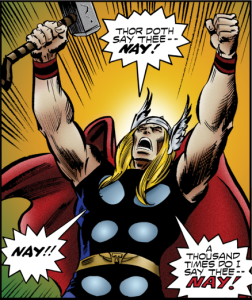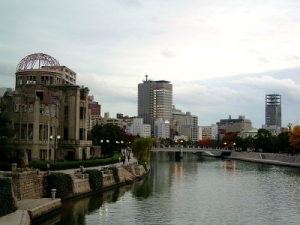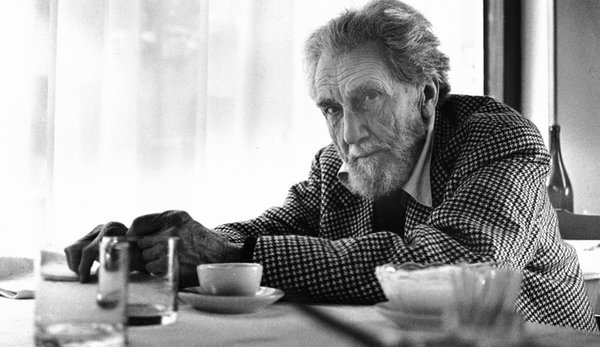
Poetry Wednesday: The Ginsberg Problem
Ginsberg isn’t a great poet. He’s arguably a good poet. But the one thing he certainly must be considered- he is an important poet. He’s a knowledgeable, fascinating poet. And he’s a symptom of what happens when pop culture and poetry meet.
Poetry never lives comfortably in the spotlight. In modern times at least, poetry is best left to the edges of the literary world. Academic poets are stuffy and clueless. Popular poets are dull and obvious. Rod Mckuen just died. He was extremely popular, and by all accounts a wonderful and thoughtful person. But he wasn’t a good poet. T.S. Eliot had a brief flare of popularity, but his brilliance was in choosing good sources and allowing Pound to edit his work. And Frost… don’t get me started on Frost…
The fact is that poetry isn’t pop culture. I love pop culture- I could argue comics or TV for happy, happy hours. But poetry is different. Poetry is more vital, more primal. Poetry, I would argue, can’t possibly be popular because it speaks to things that, while universal, are not comfortable to discuss. Poetry must push us- push language, push thought, push conventions. It must push them beyond what they can stand.
So, the Ginsberg problem. Because Ginsberg does all of these things. But somehow he falls short of greatness. I’m convinved that the root problem of Ginsberg is his immersion into pop culture. He became a figure that was in the public eye and not a poet. And he could be a poet- argue about the merits of Howl or America all you like, it is vital, it is challenging. It is poetry. My favorite poem of his, A Supermarket in California, illustrates the Ginsberg problem perfectly. It is a poem that can only work if the poet is removed from popular culture. It is a poem of the outsider who wishes to understand and engage a famous lost figure from history. It’s poetry.
Strangely, then, given the problem I have with Ginsberg as a poet, is my reaction to him. I wept when he died. I felt connected to the poet. Perhaps only the early poet, the lost confused Columbia student. But perhaps the person who could have written the poems. Not the pop culture figure he became, but the quiet secluded academic he could have been. I love Ginsberg because of the brilliance of his desire for poetry. If he had taken the route of a Creeley or an Olson we could have had the purest American poet since Whitman himself.
What we got, instead, was a brilliant poet subsumed under pop culture. Who still moved me to tears when he was lost to us.
A Supermarket in California
What thoughts I have of you tonight, Walt Whitman, for I walked down the sidestreets under the trees with a headache self-conscious looking at the full moon. In my hungry fatigue, and shopping for images, I went into the neon fruit supermarket, dreaming of your enumerations! What peaches and what penumbras! Whole families shopping at night! Aisles full of husbands! Wives in the avocados, babies in the tomatoes!--and you, García Lorca, what were you doing down by the watermelons? I saw you, Walt Whitman, childless, lonely old grubber, poking among the meats in the refrigerator and eyeing the grocery boys. I heard you asking questions of each: Who killed the pork chops? What price bananas? Are you my Angel? I wandered in and out of the brilliant stacks of cans following you, and followed in my imagination by the store detective. We strode down the open corridors together in our solitary fancy tasting artichokes, possessing every frozen delicacy, and never passing the cashier. Where are we going, Walt Whitman? The doors close in a hour. Which way does your beard point tonight? (I touch your book and dream of our odyssey in the supermarket and feel absurd.) Will we walk all night through solitary streets? The trees add shade to shade, lights out in the houses, we’ll both be lonely. Will we stroll dreaming of the lost America of love past blue automobiles in driveways, home to our silent cottage? Ah, dear father, graybeard, lonely old courage-teacher, what America did you have when Charon quit poling his ferry and you got out on a smoking bank and stood watching the boat disappear on the black waters of Lethe?
–Berkeley, 1955

 e. It was a city on the verge of a new era, and it spoke to me as a vision of what living in a community could be.
e. It was a city on the verge of a new era, and it spoke to me as a vision of what living in a community could be.










 It’s ridiculous to write a blog post about Pound. Pound is 20th century poetry. What can I say in 500 words? Next to nothing. To really write about Pound, you need to be ready to embrace the aesthetic of Pound and come at it full force, baring everything and holding back nothing. Hugh Kenner did it- he wrote
It’s ridiculous to write a blog post about Pound. Pound is 20th century poetry. What can I say in 500 words? Next to nothing. To really write about Pound, you need to be ready to embrace the aesthetic of Pound and come at it full force, baring everything and holding back nothing. Hugh Kenner did it- he wrote